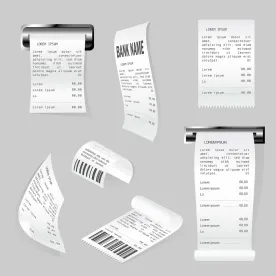In recent years, Fair Debt Collection Practices Act (“FDCPA”) litigation has exploded—and particularly so in the Eastern District of New York, one of the busiest FDCPA dockets in America. Increasingly, the theories of liability in many FDCPA cases have become increasingly attenuated, and focused primarily on the recovery of fees for plaintiffs’ counsel rather than remedying injuries to plaintiffs themselves. The E.D.N.Y. recently addressed the proliferation of these fee-first lawsuits in an opinion addressing six different FDCPA class actions, In re FDCPA Mailing Vendor Cases, 2021 U.S. Dist. LEXIS 139848.
The court faced six pending class actions based on alleged violations of the FDCPA. But in every case, plaintiffs alleged no actual damages, leaving attorney fees as the only actual relief to be rewarded in the case plaintiffs won. In light of the Supreme Court’s recent decision in Transunion LLC v. Ramirez, 141 S. Ct. 2190 (2021), in which the Court held that a plaintiff in a Fair Credit Reporting Act action must be concretely harmed to have standing to seek damages, the Eastern District took a thorough look at standing the FDCPA context.
First, the court looked at how the FDCPA is properly used—and repeatedly abused. The purpose of the FDCPA is to give debtors “harmed by abusive debt collection practices” relief and a safe harbor from those practices. But surveying the landscape of FDCPA litigation in the Eastern District of New York, the court found an increasing number of “bizarre” and “idiosyncratic” interpretations of the law by putative FDCPA plaintiffs and their counsel. Those plaintiffs and their lawyers “have applied considerable imaginations in devising theories of violation,” leading to a proliferation of cases in which plaintiffs claim to be injured by representations or omissions so minor or irrelevant that they could not possibly be “abusive” within any true meaning of the word, while seeking no actual damages beyond fees for having filed the suit. For instance, one dismissed suit from the Southern District of New York asserted claims that a debt collection letter was “abusive” because it did not specify that personal checks were an acceptable form of payment, while another dismissed suit from the Eastern District asserted that a letter containing the wrong Better Business Bureau rating was somehow deceptive.
The court then turned to the central issue: standing. In Transunion, the Supreme Court found that mere inaccuracies in a person’s credit report, standing alone, do not provide standing to file suit and seek damages. Taking this holding into the context of the six cases before it, the Eastern District then addressed whether those plaintiffs had standing. The cases, all class actions, advanced claims on a “mailing vendor” theory: a debt collector’s employing an outside vendor to print and mail debt collection letters violated the FDCPA and gave rise to damages because the FDCPA bars sharing information about the collection of the debt with anyone other than a select group of people. The additional harm alleged was the speculative potential for the vendor to then share that information with others.
In Transunion, the Supreme Court also stated that “intra-company disclosures” such as those between a company and its employed vendor traditionally have not given rise to causes of action based on defamation or publication. It likewise held that speculative future harm does not give rise to standing. Applying these principles to the class actions before it, the court held that a debt collector sharing information with a retained vendor to print proper notices, without more, does not constitute a concrete injury—particularly when the only harm on the horizon is entirely speculative. The court found further grounds to dismiss the cases based on plaintiffs’ hyper-technical reading of the letters, in which the debt collector identified itself as acting based on behalf of “original creditors.” Plaintiffs stated that because they had no direct relationship with the debt collectors, they did not owe the debt, ignoring the plain language of the letters in which the original creditors were expressly identified.
In short, In re FDCPA Mailing Vendor Cases represents a potential sea change in the way FDCPA cases are treated. It bolsters any defendant’s argument regarding lack of standing in relation to purely informational or hypothetical injuries, and does so in a way that heads off the ever-more-creative theories advanced by plaintiffs.




 />i
/>i

